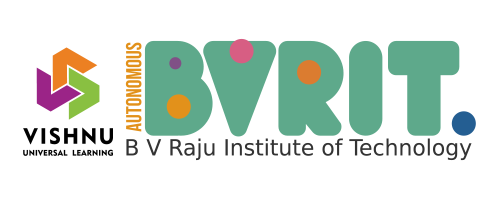Basic Pharmaceutical Engineering Lab
Pharmaceutical Chemistry is the discipline at the intersection of chemistry, especially synthetic organic chemistry, pharmacology and various other biological specialties where they are involved with design, chemical synthesis and drug development. Students can learn to perform assay techniques, limit tests for organic & inorganic compounds, identify and purify several pharmaceutical ingredients. Studying this allows students to learn fundamentals of basic chemistry and there by synthesis of drugs for several diseases.
Fluid Mechanics and Mechanical Unit Operations Lab
Fluid mechanics laboratory deals with fluids and their flows. Pressure variations of compressible fluids when they allowed flowing through various pipes and flow equipment and theoretical demonstration of different laws of fluid mechanics are studied. The laboratory is equipped with Venturimeter, Orifice meter, frictional losses in pipe, Reynolds Apparatus, Centrifugal pump, Fluidized bed reactor and packed bed reactor, Calibration of Rotameter etc.
Mechanical Unit Operations laboratory includes the study of solid mechanics, properties of particulate solid materials, powder processing, transportation and storage of solids. The lab is equipped with Jaw crusher, Roll mill, Ball mill, Hammer mill, Verification of stokes law, Batch sedimentation, Plate and frame filter press. This laboratory allows students to gain knowledge on different kind of mechanical operations, different properties of powders, powder processing, transportation and storage of solids. With this knowledge, they can able to design of different equipments which are useful to Pharmaceutical, Chemical and many other industries
Microbiology Lab
Microbiology & Biochemistry is an interdisciplinary course. In Microbiology, students gain knowledge on identification, isolation and cultivation of microorganisms which helps in sterility testing and biosafety measures of pharmaceutical products. In biochemistry, students study about building blocks of living organisms like carbohydrates, lipids and nucleic acids which help in understanding metabolism, gene expression and cell division.
Physical Pharmaceutics Lab
Chemical and physical principles are utilized to study the molecular events underlying the development and design of pharmaceutics and their formulations. Students learn the detailed concepts of physical properties of various materials, correlate theoretical fundamentals with practical approaches to determine the parameters like solubility in liquids, eutectic point, critical solubility temperature, particle size distributions for powders, flowability of powders & granules, stability parameters for suspensions and emulsions, buffer capacity, complexation ratio, etc. This laboratory imparts the knowledge of solubilizing agents, buffers, isotonicity modifiers, glidants for flowability, suspending agents, emulsifying agents in formulations etc.
Reaction Engineering Lab
The chemical reaction engineering lab is equipped with the state-of-the-art equipments, automated like the Adiabatic and isothermal plug flow reactors (PFRs), Isothermal CSTR, Packed Bed reactors and the facilities of Trickle bed reactor in order to make the students visualize the immediate real time industrial conditions and learn about the reaction techniques. The purpose of this lab is to introduce the undergraduate students with the most important reactor types in the process industry, and provide a hands-on training of the proper operation of these units.
This helps in not only understanding the theoretical fundamentals of the subject but also helps to visualize its real-world applications in the process industry. These experiments help the students to understand reaction kinetics and reactor residence time distribution in detail. The experiments covered in this lab also pave way for inculcating certain innovative skills in the students making them to use these experimental setups as starting point to take up higher level experimental studies in Chemical reaction engineering.
Heat Transfer Lab
Heat Transfer Laboratory helps the students to understand the basic concepts of heat transfer: Conduction, Convection and Radiation which are the three basic modes for heat transfer to take place. The lab is equipped with Shell and Tube heat exchanger, Forced Convection Apparatus, Stefan Boltzmann Apparatus, Thermal Conductivity of metal rod, Natural Convection Apparatus, Composite wall Apparatus etc.
Mass Transfer Operations Lab
Mass transfer laboratory helps students with the most important separation equipments in the process industry, and provides a hands-on training of the proper operation of these units. This helps in not only understanding the theoretical fundamentals of the subject but also helps to visualize its real-world applications in the process industry.The experiments include Simple distillation, Batch distillation with rectification, Liquid liquid extraction, Solid liquid equilibrium etc.
Pharmaceutical Analysis Lab
The laboratory is equipped with analytical instruments like UV visible spectroscopy, Colorimeter, Refractometer, Nephlometer, Thin layer and paper chromatography. These instruments cater to the needs of undergraduate education to comply with in process quality control test as a as per regulatory guidelines. In addition, this lab deals with the theoretical as well as practical knowledge of the subject that a student needs to acquire in the current scenario of quality control and quality assurance of pharmaceutical substances. The subject includes an introduction to pharmacopoeias (I.P., B.P., U.S.P., and others) and different analytical methodology used in pharmacopoeias for the analysis of drug substances. This course also gives the knowledge on the advances in instrumentation techniques like LC-MS, GC-MS, 13C NMR, X ray diffraction to the students.
Industrial Instrumentation and Process Control Lab
A specific reaction process cannot be successful to yield the required product or the anticipated results, without proper estimation of the dynamics associated with them and the requisite control techniques adopted. Here we have the process dynamics and control lab to let the upcoming engineer understand, practice and adopt the proper methodologies involved in an industrial set up for carrying out the operations and processes like the Interacting systems, Non-interacting systems, Simulations of the temperature controllers, Flow controllers, Level controllers, Pressure controllers with the use of in-built systems of P, PI & PID control strategies.
Industrial Pharmacy Lab
The department is equipped with the state of art laboratories, ultra-modern facilities and competitive staff which have been considered as most sophisticated infrastructure in the state. The focused research areas of the department are Pre-formulation studies, Development of different pharmaceutical dosage forms including novel and nanotechnology based drug delivery systems, Evaluation of developed dosage forms with respect to various in vitro and in vivo parameters and Studying the biopharmaceutical and pharmacokinetic aspects of the drug as well as its dosage forms.
There are different areas such as production/ manufacturing, validation aspects, quality assurance/ control, technology transfer, process development, formulation development, generic product development, drug metabolism and pharmacokinetics (DMPK), intellectual property rights, pharmacovigilence, scientific writing and regulatory affairs where candidates are getting recruited.














